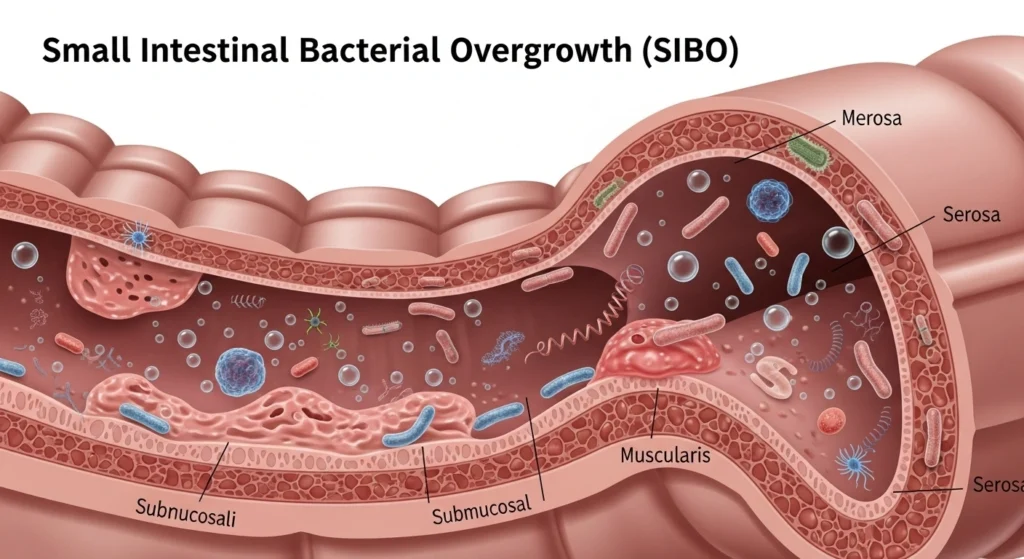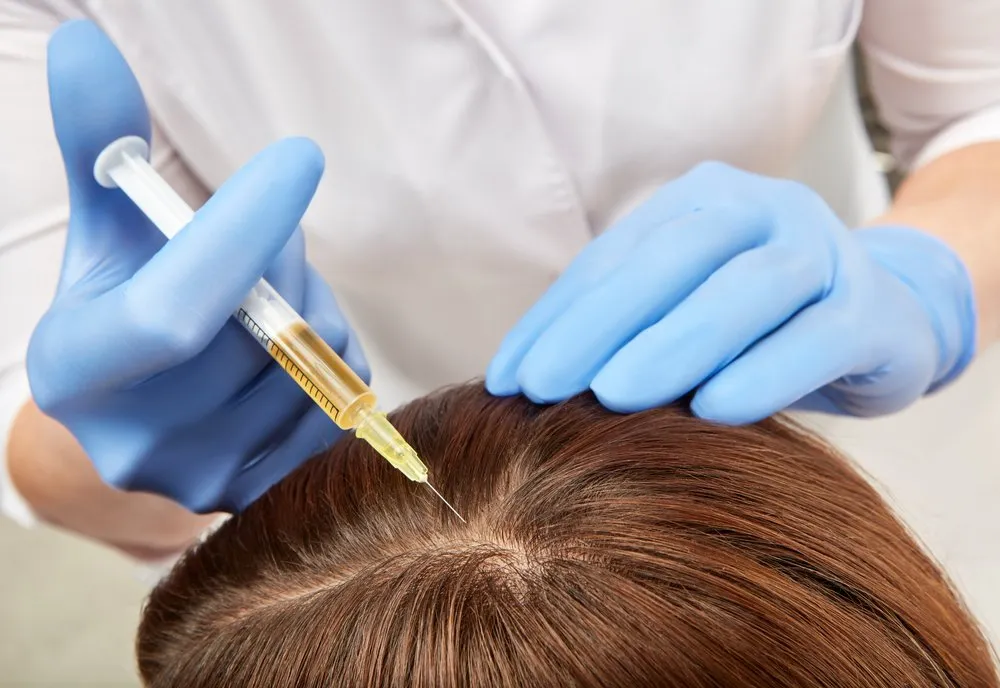Are you struggling with unexplained shedding and wondering, “Can SIBO cause hair loss?” Small Intestinal Bacterial Overgrowth (SIBO) disrupts nutrient absorption and can trigger inflammation that weakens hair growth.
In this guide, you’ll discover how gut imbalances affect your hair, the science behind SIBO-related shedding, and what treatments can help restore both gut health and hair vitality. Backed by medical insights and expert guidance, this article shows you the path to recovery with clarity and trust.
What Is SIBO and Why Does It Matter for Hair Health
Defining SIBO

SIBO occurs when bacteria that normally reside in the colon overgrow in the small intestine. This imbalance interferes with digestion, causing symptoms like bloating, gas, diarrhea, or constipation. Beyond digestive issues, SIBO can impact overall health, including your hair.
Why SIBO Can Compromise Nutrient Absorption
The small intestine is where the body absorbs vital nutrients. When bacteria overgrow here, they consume or block nutrients essential for hair growth, including:
- Iron – low levels may cause diffuse hair thinning.
- Vitamin B12 – critical for red blood cell production and oxygen delivery to follicles.
- Zinc – supports hair follicle function and repair.
- Vitamin D – regulates hair cycling.
- Protein & amino acids – building blocks for keratin, the main hair protein.
How SIBO May Lead to Hair Loss
Nutrient Deficiencies and Malabsorption
SIBO limits absorption of iron, biotin, and B vitamins, nutrients strongly linked with hair strength. Chronic deficiencies can shift follicles into a resting phase, leading to noticeable shedding.
Telogen Effluvium Triggered by Gut Stress
Inflammation and stress caused by chronic illness like SIBO may trigger telogen effluvium, a temporary form of hair loss where more hairs than usual enter the shedding phase.
Inflammation, Oxidative Stress, and Leaky Gut
Gut overgrowth may damage the intestinal lining, causing “leaky gut.” This allows toxins to enter the bloodstream, creating systemic inflammation that disrupts hair follicle cycles.
Hormonal Imbalance and Autoimmune Triggers
SIBO is sometimes associated with thyroid dysfunction, PCOS, and autoimmune conditions. These hormonal imbalances can accelerate shedding or trigger alopecia areata in predisposed individuals.
Disrupted Microbiome and the Gut-Skin Axis
Research suggests a gut-skin-hair axis exists. Dysbiosis (imbalanced gut flora) can influence scalp conditions, sebum production, and even inflammatory disorders like seborrheic dermatitis—all linked with hair thinning.
Symptoms & Signs to Watch For
Digestive Symptoms of SIBO
- Persistent bloating or abdominal distension
- Chronic diarrhea or constipation
- Gas, cramping, or indigestion
- Nutrient deficiencies despite a good diet
Hair-Related Symptoms
- Diffuse thinning across the scalp
- Excess shedding, especially after washing
- Dull, brittle hair that breaks easily
- Slower regrowth after shedding episodes
When to Consider Testing
If you experience both digestive distress and unexplained hair loss, testing for SIBO may be recommended. Common tests include:
- Breath tests for hydrogen and methane gases
- Blood work for iron, ferritin, vitamin D, and B12 levels
- Jejunal aspirate culture (less common but most accurate)
Diagnosing & Treating SIBO to Protect Your Hair
How SIBO Is Diagnosed
Doctors typically use a lactulose or glucose breath test to confirm bacterial overgrowth. Additional blood panels check for related nutrient deficiencies.
Treatment Options
- Antibiotics (e.g., rifaximin, neomycin) – target bacterial overgrowth directly.
- Dietary approaches – low FODMAP diet, specific carbohydrate diet, or elemental diet.
- Probiotics – to restore microbial balance (under medical supervision).
- Lifestyle adjustments – stress reduction, better sleep, mindful eating habits.
Nutritional Supplementation Strategies
Correcting deficiencies is essential to support regrowth. Supplements often include:
- Iron and ferritin boosters
- B-complex vitamins, especially B12 and biotin
- Zinc and vitamin D
- Collagen or protein powder to rebuild keratin
Supporting Scalp Health
Alongside gut healing, scalp care matters:
- Use mild, nutrient-rich shampoos
- Avoid harsh chemicals that worsen shedding
- Consider PRP therapy or microneedling for follicle stimulation

Recovery Timeline & What to Expect
Typical Timeline for Hair Regrowth After Resolving SIBO
- 0–3 months: Nutrient absorption improves, shedding slows.
- 3–6 months: Hair follicles re-enter growth phase, early regrowth visible.
- 6–12 months: Noticeable improvement in density and strength.
Monitoring Progress
Track recovery with:
- Monthly scalp photos
- Hair thickness checks (ponytail test or density scans)
- Blood work every 3–6 months to monitor nutrient levels
When to Seek Further Medical Advice
If hair does not improve within 12 months of successful SIBO treatment, consult a dermatologist or hair restoration specialist. Underlying genetic or hormonal causes may also contribute.
FAQs
Can hair loss from SIBO be permanent?
Usually not. Once SIBO is treated and nutrients are restored, most people experience regrowth. However, untreated long-term deficiencies can cause lasting thinning.
Which nutrients are most critical to restore?
Iron, zinc, vitamin D, and B12 are especially important for hair regrowth.
Do probiotics alone help with SIBO hair loss?
Probiotics may support gut balance, but they are not a standalone cure for SIBO. Medical treatment is often required.
How long before you see hair regrowth?
Shedding often stabilizes within 3 months of treatment, but visible regrowth may take 6–12 months.
Should I work with a gastroenterologist or dermatologist?
Ideally both. Gastroenterologists treat SIBO while dermatologists address hair loss. A combined approach ensures faster recovery.
Next Step
If you’re dealing with both digestive issues and thinning hair, don’t wait for symptoms to worsen. Addressing SIBO may be the key to restoring your hair’s health and confidence. Book a consultation with Dr. Rana Irfan in Islamabad today to receive expert guidance on gut health, nutrient recovery, and proven hair restoration treatments tailored to your needs.
